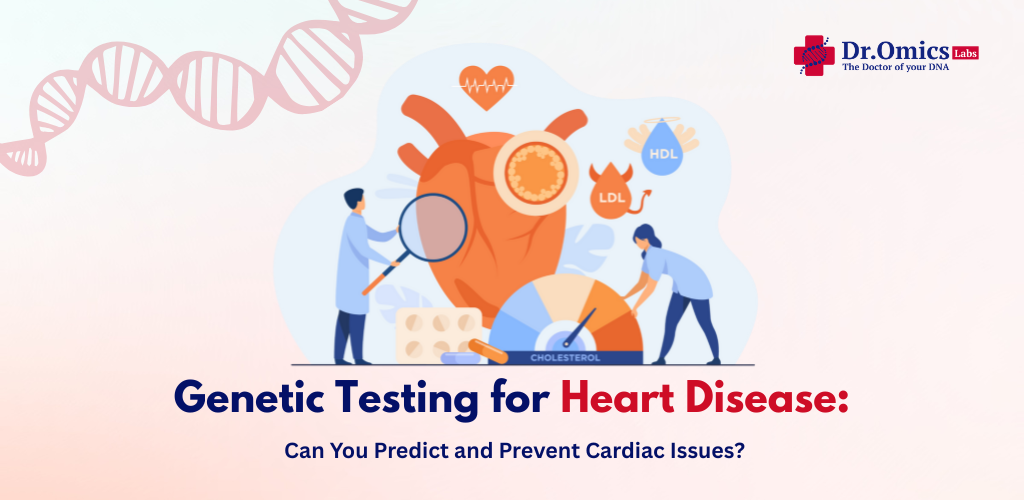How Genetics Influence Insulin Sensitivity and Blood Sugar Control
Insulin sensitivity—the body’s ability to respond to insulin and maintain healthy blood sugar levels—is a cornerstone of metabolic health. However, not everyone’s system handles insulin the same way. While diet and lifestyle play major roles, emerging evidence reveals that genetic variation significantly impacts insulin sensitivity and glucose metabolism.
This blog explores how your DNA influences blood sugar control, why some individuals are predisposed to insulin resistance, and how advanced genetic testing like a DNA test for glucose metabolism or a genetic insulin sensitivity test can personalize your approach to preventing or managing diabetes.
Understanding Insulin Sensitivity and Resistance
Insulin resistance occurs when cells in your muscles, fat, and liver don’t respond well to insulin and cannot easily absorb glucose from the blood. In response, the pancreas produces more insulin to compensate, eventually leading to type 2 diabetes if the dysfunction persists.
Insulin resistance is not always driven by obesity. Shockingly, up to 40% of people aged 18–48 are insulin resistant, with nearly half of them being non-obese [(Abstract 3)].
This condition is a major risk factor not only for diabetes but also for cardiovascular diseases, kidney failure, Alzheimer’s, depression, and certain cancers. These risks are exacerbated by a silent yet powerful influence—your genes.
Genetic Contributions to Insulin Resistance: The Known Players
Scientific literature has established that mutations in specific genes can dramatically impact insulin signaling. For instance:
- INSR mutations can result in severe syndromes like Donohue and Rabson–Mendenhall, characterized by extreme insulin resistance.
- PIK3R1 mutations are associated with SHORT syndrome and insulin pathway disruption.
- AKT2, PTPN11, and PTEN mutations also modulate insulin action, often leading to metabolic dysfunction or spontaneous hypoglycemia [(Abstract 2)].
These insights form the foundation for genetic insulin sensitivity testing, helping identify patients who may require specialized care or monitoring from a younger age.
DNA Testing for Glucose Metabolism: A Precision Medicine Tool
Genetic testing has transitioned from a research tool to a clinical necessity in many metabolic disorders. Modern DNA tests for glucose metabolism can identify variations in gene clusters such as GCKR, MLXIPL, APOA5, and APOC1, all of which affect insulin resistance markers like the TyG index and TG:HDL-C ratio [(Abstract 4)].
Such tools help stratify individuals based on polygenic risk scores, allowing clinicians to tailor interventions for those at high genetic risk of metabolic syndrome, gout, or hyperlipidemia.
How Gene-Environment Interactions Shape Risk
While your genes may load the gun, lifestyle often pulls the trigger. Research shows that poor dietary habits—especially high intake of sugar, saturated fats (like palmitic acid), and refined carbs—can activate or exacerbate genetically mediated insulin resistance [(Abstract 3)].
The concept of glucolipotoxicity, the damage caused by the accumulation of both glucose and fatty acids in tissues, underpins this phenomenon. This interaction damages pancreatic β cells, reduces insulin secretion, and worsens hormonal imbalance.
Here, a personalized diabetes management DNA test becomes particularly useful. It doesn’t just highlight genetic risk—it informs actionable dietary and lifestyle changes customized to an individual’s genetic profile.
The Emerging Role of Epigenetics
In addition to fixed genetic variants, epigenetics—modifications that regulate gene expression without altering the DNA sequence—play a crucial role in insulin sensitivity. Environmental stressors like poor nutrition, lack of exercise, or toxin exposure can silence or activate genes involved in glucose metabolism [(Abstract 1)].
This presents an opportunity: epigenetic changes can, in some cases, be reversed. This means lifestyle modifications not only mitigate risk but may partially correct genetic predispositions through changes in gene expression.
Real-World Application: Why Genetic Testing Matters
Consider a student in their early 20s, non-obese but chronically fatigued and struggling with concentration. Traditional diagnostics might not raise red flags. However, a genetic blood sugar regulation test could reveal hidden insulin resistance, allowing for early intervention before clinical symptoms escalate.
Similarly, in a family with a history of type 2 diabetes, children can benefit from genetic insulin sensitivity testing to adopt preventive strategies early in life. Personalized plans can address dietary needs, physical activity recommendations, and stress management techniques.
Key Takeaways: Your Genes, Your Strategy
- Not all insulin resistance is lifestyle-induced—genetics can predispose individuals to poor glucose metabolism.
- Monogenic and polygenic contributions affect how your body handles insulin.
- Advanced genetic testing can predict risk before symptoms arise.
- Epigenetics matters—your lifestyle can influence gene expression.
- Personalized interventions based on DNA insights are the future of metabolic health.
Final Thoughts:
We are entering a new era in metabolic health—one driven by precision medicine and genetic insight. Whether you’re managing diabetes or aiming to prevent it, tools like an insulin resistance DNA test or a genetic test for glucose metabolism can provide the clarity needed to make smart, informed decisions.
Rather than treating diabetes reactively, we now have the tools to detect predisposition before it becomes a diagnosis. Understanding your DNA is not just about knowing your ancestry—it’s about taking control of your health future.
References:
- L, K. M. (2024). The Relationship between Genetics and Diabetes: A Comprehensive Review. International Academic Association Journal of Scientific Research., 11(3), 7–13. https://doi.org/10.59298/iaajsr/2024/113.713
- Kushi, R., Hirota, Y., & Ogawa, W. (2020). Insulin resistance and exaggerated insulin sensitivity triggered by single-gene mutations in the insulin signaling pathway. Diabetology International, 12(1), 62–67. https://doi.org/10.1007/s13340-020-00455-5
- Insulin Resistance Treatment with Balanced Personalized Nutrition to Improve Insulin Sensitivity for Prediabetes Remission and Diabetes Type 2 Reversal with Reduction of Risks for Related Chronic Disease. (2024). Journal of Nutrition Food Science and Technology. https://doi.org/10.47485/2834-7854.1042
- Lin, E., Yan, Y., Chen, M., Yang, A. C., Kuo, P., & Tsai, S. (2025). Gene clusters linked to insulin resistance identified in a genome-wide study of the Taiwan Biobank population. Nature Communications, 16(1). https://doi.org/10.1038/s41467-025-58506-x




